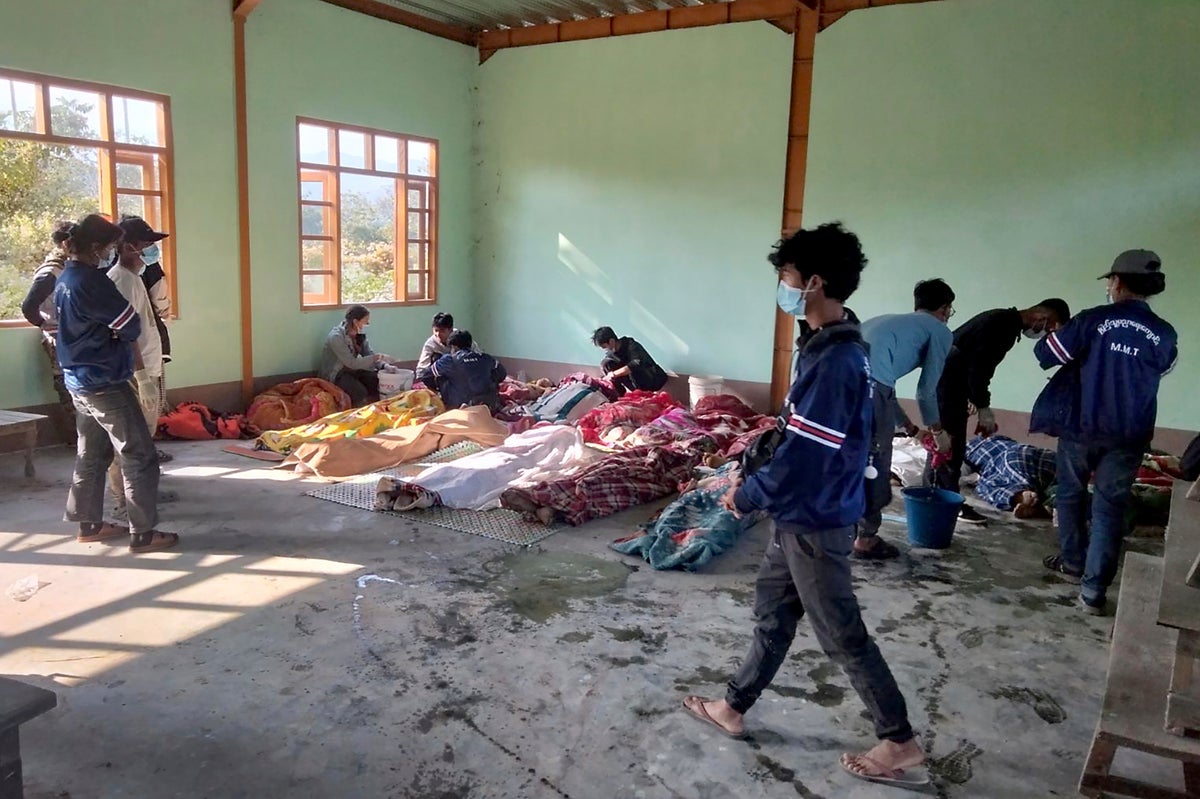
A veteran Laotian diplomat recently appointed the Association of Southeast Asian Nations ’ special envoy to Myanmar arrived Wednesday on his first mission to the strife-torn nation, meeting with the head of the ruling military council and other top officials, state television MRTV reported.
Diplomat Alounkeo Kittikhoun faces the tough challenge of promoting the regional group’s peace plan for Myanmar to quell the violence between the military government, which seized power from the elected government of Aung San Suu Kyi in February 2021, and an armed pro-democracy resistance movement that is assisted by ethnic minority fighting forces.
Almost 2 million people have been displaced by years of fighting in Myanmar, according to the U.N., and the 10-member ASEAN regional grouping is concerned that the destabilization could have regional consequences, including generating large numbers of refugees. Neither the military government nor its pro-democracy government foes have shown any inclination to compromise.
Alounkeo's visit comes just ahead of a meeting of ASEAN foreign ministers scheduled for Jan. 28-29 in Luang Prabang, the old capital of Laos. It is the turn this year of Laos to act as chair of the bloc, which includes Myanmar.
ASEAN has been seeking to implement a five-point consensus it reached on Myanmar just a few months after the army’s takeover. It called for the immediate cessation of violence, a dialogue among all concerned parties, mediation by an ASEAN special envoy, provision of humanitarian aid through ASEAN channels, and a visit to Myanmar by the special envoy to meet all concerned parties.
MRTV reported that Alounkeo's meetings included discussions about the implementation of the five-point consensus, the military government's efforts at providing humanitarian assistance and plans for the military’s promised election. Bilateral relations and Laos' role as ASEAN chair were also discussed, it said.
Myanmar’s military government initially agreed to the consensus but has since made little effort to implement it, even as the country has slipped into a situation that U.N. experts have characterized as a civil war. Its stonewalling led fellow ASEAN members to block key leaders of the military government from attending major meetings of the regional grouping.
Indonesia, Singapore and Malaysia, all electoral democracies, are known to have taken a strong stand against any engagement that could be perceived as favoring the Myanmar’s generals’ claims to be the country’s legitimate leaders. Authoritarian nations such as Vietnam, Cambodia and Laos are less critical of the ruling generals, as is Thailand, whose military retains strong influence over security matters.
Some members of the Nationwide Ceasefire Agreement — Signatories, Ethnic Armed Organizations, a group established nine years ago to pursue ways of ending decades of armed conflict with the military, also held a meeting with Alounkeo.
MRTV reported they also discussed the five-point consensus and humanitarian assistance. However, since none of the seven groups that attended are currently at war with the military, the relevance of their participation for peacemaking appeared to be minimal.
It was not immediately known if Alounkeo would meet with Suu Kyi, who was arrested when the military seized power. The 78-year-old Suu Kyi is now serving a 27-year prison term in Naypyitaw after being convicted in a series of politically tinged prosecutions brought by the military.
The military government has refused to allow her to meet with any previous ASEAN special envoys, who came in turn from Brunei, Cambodia and Indonesia.
Alounkeo, 72, is a former minister in Laos' prime minister’s office and has also served as his country’s ambassador at the United Nations.







